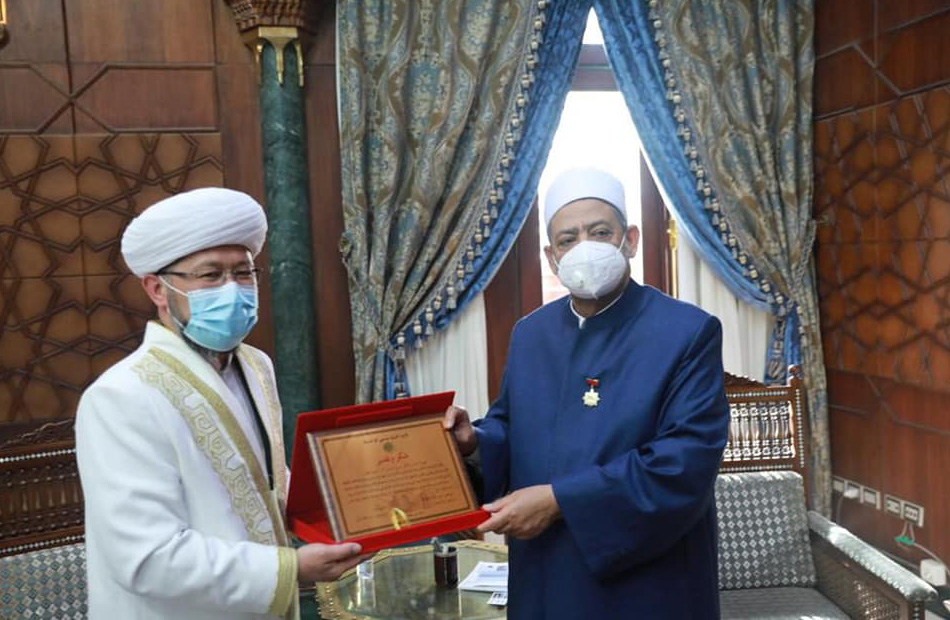Al-Azhar spares no effort to support the nation's issues and meet its scientific and intellectual needs, Al-Azhar Grand Imam
In his office at Al-Azhar headquarters, Al-Azhar Grand Imam, Prof. Ahmad At-Tayyeb, welcomed a delegation of the Ministers of Endowments and Muftis from Kazakhstan, Yemen, Comoros Islands, and Chad to discuss and research the most important common issues and the files of international students, Al-Azhar missions, and imam training. The Grand Imam welcomed the guests of Egypt, at Al-Azhar, and said, “Al-Azhar Ash-Sharif pays great attention to the issues of the Arab and Muslim countries and supports religious and linguistic ties and commonalities that strengthen the nation's fabric and unite it to face challenges. Al-Azhar will not hesitate to support the nation's issues and meet its scientific and intellectual needs. The Grand Imam pointed out that Al-Azhar represents a tool for linking the nation’s peoples across its geographical area. Muslim students and imams from more than 100 countries and different cultures come to Al-Azhar to meet in one place for several years. The personality of the Muslim student at Al-Azhar is formed here. The ministers and the muftis displayed their country’s scientific, cultural, and religious relations with Al-Azhar, the role of Al-Azhar graduates in their societies, and the ability of these graduates to preserve their homelands, integrity, and identity thanks to what they have learned at Al-Azhar. These graduates have assumed leading positions in their countries. Among them are ambassadors, ministers, muftis, and some have become state presidents. This reflects the strength of Al-Azhar’s curriculum and its precedence over the Arab and Muslim countries.
The ministers and the muftis affirmed their interest and keenness to raise the level of cooperation with Al-Azhar by providing more scholarships and training more imams and preachers at Al-Azhar to address contemporary issues that have spread in recent years as a result of the impact of social networking sites on the youth, with the false information published on them. These sites affect the cognitive and behavioral framework of the youth instead of providing them with the curricula and scientific books that enrich the scientific libraries in their countries and serve the message of science and knowledge.
